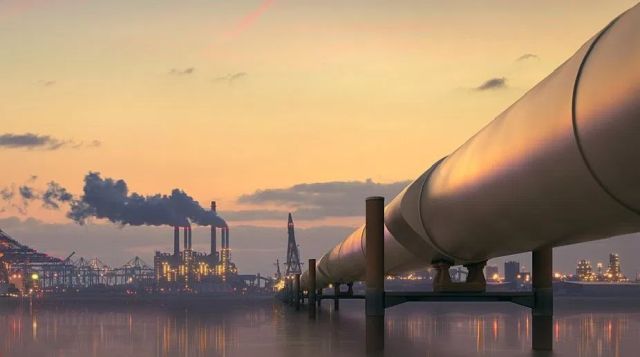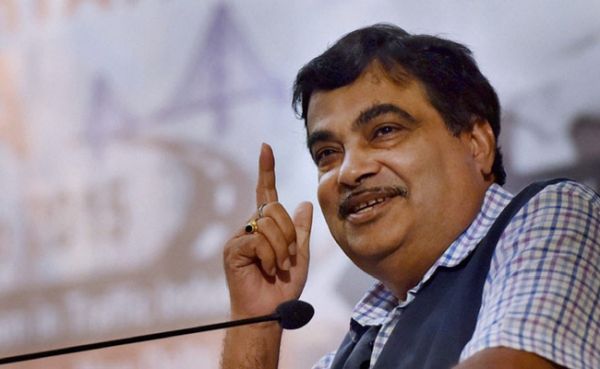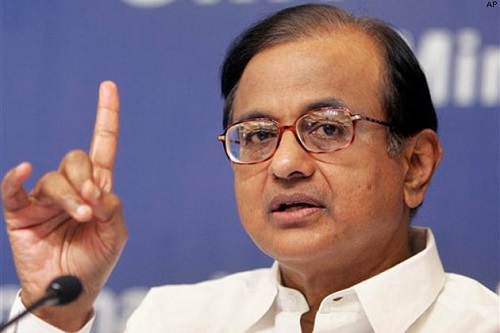
by admin | May 25, 2021 | Business, Commodities, Commodities News, Economy, Markets, Medium Enterprise, News
 New Delhi : Lower global crude oil cost, along with a strengthened rupee, pulled the prices of key transportation fuel — petrol and diesel — down by around nine paise in the four metro cities.
New Delhi : Lower global crude oil cost, along with a strengthened rupee, pulled the prices of key transportation fuel — petrol and diesel — down by around nine paise in the four metro cities.
On Saturday, Brent crude oil prices slipped to around $76 per barrel from $77 a barrel as global supply concerns eased. A decline in global crude oil prices in turn lessen the cost of refined products like gasoline or petrol.
As per the country’s pricing mechanism, the domestic petrol prices are dependent on the international fuel price on a 15-day average.
Besides, the Indian rupee has strengthened.
On a weekly basis, it appreciated by 72 paise to close at 67.06 against the US dollar from its previous week’s close of 67.78 per greenback.
Consequently, in the national capital, petrol was sold at Rs 78.20 per litre, down from Rs 78.29 on Friday, data on the Indian Oil Corp’s website showed.
In Mumbai and Chennai, petrol prices were at Rs 86.01 and Rs 81.19 a litre, respectively, down nine paise from Friday’s levels.
In Kolkata, petrol price fell by eight paise to Rs 80.84 per litre.
Prices of the key transportation fuels have been cut marginally on a daily basis, under the dynamic pricing system since May 30, as global crude oil prices began to ease.
In tandem with petrol prices, diesel prices also witnessed a decline. In Delhi, Kolkata, Mumbai and Chennai, the fuel was sold at Rs 69.11, Rs 71.66, Rs 73.58 and Rs 72.97 per litre — all prices down nine paise from Friday’s levels.
The recent surge in prices of key transportation fuel was attributed to a rise in crude oil cost, which rose till last week, and the high excise duties levied on the fuel in the country.
—IANS

by admin | May 25, 2021 | Corporate, Corporate Governance, Economy, Markets, News, Politics
 New Delhi : With opposition parties mocking the one paisa cut in the prices of petroleum products, Petroleum Minister Dharmendra Pradhan on Wednesday said the prices are decided by the oil companies and the government has no role in it.
New Delhi : With opposition parties mocking the one paisa cut in the prices of petroleum products, Petroleum Minister Dharmendra Pradhan on Wednesday said the prices are decided by the oil companies and the government has no role in it.
“Petrol prices were connected to the market a few years back and daily pricing was brought in a year back. The government does not fix the price.
“The government used to monitor the price when it used to give out subsidy but today the oil companies are free to decide their price as per the international market. The government has no role in monitoring the price apart from the policy framework,” he said.
Earlier in the day, Indian Oil Corporation (IOC) reduced the prices of petrol and diesel by one paisa after accidentally showing a fall of 50-60 paisa per litre due to a “technical glitch”. The minor reduction came after a daily hike for the last 16 days totalling to Rs 4 per litre.
The Congress slammed the government for “playing a cruel joke” on the people.
“Dear Prime Minister, you have cut the price of petrol and diesel today by 1 paisa. One paisa!?? If this is your idea of a prank, it is childish and in poor taste. PS: A One paisa cut is not a suitable response to the #FuelChallenge I threw you last week,” tweeted Congress chief Rahul Gandhi.
However, Pradhan said oil is an international commodity and its prices are determined by several factors like quantum of oil production, international market and politics, oil companies and the taxes levied by the Centre and states.
“I have said this (oil) is an international commodity. The price has increased because of a fight between Iran and America, America’s sanction on Iran and Venezuela crisis. We need to keep in mind international diplomatic challenges when we think about energy security,” he said.
Noting both Central and state governments have responsibilities for welfare, he said: “Of the entire money that the Central government collects, 42 per cent is given to the states as per 14th Finance Commission. Of the balance, 60 to 70 per cent goes back through Centrally sponsored schemes. Development of the states is a priority issue.”
On Kerala declaring a price cut of Re 1 per litre of petrol and diesel from Friday forgoing the amount from its tax portion, Pradhan said the state is one of the largest tax collectors.
Other states should try to reduce fuel prices but each state has their limitations and priorities, he said.
—IANS

by admin | May 25, 2021 | Economy, News, Politics

Nitin Gadkari
New Delhi : With petrol and diesel rates skyrocketing on a daily basis, Road Transport and Highways Minister Nitin Gadkari on Friday advocated bringing fuel under the GST to curb the price hike.
“Petrol and diesel should have been brought under the Goods and Services Tax. I asked officials during a presentation if we bring fuel prices under GST will it benefit the states or not.
“They said ‘yes’, they will benefit,” Gadkari said at a news conclave here on the four years of Prime Minister Narendra Modi’s government.
He said, however, the states were wary of losing revenue on account of taxes they collect from fuel prices and liquor.
“It will be good if fuel prices are brought under GST. This will not only reduce the fuel prices but will also increase the government’s revenue.”
He, however, said it was his personal opinion, and the ultimate decision regarding this remained with the Petroleum Ministry.
The Minister said fuel prices were surging because of international crude oil rate.
“Earlier, we were giving subsidy on the import (of fuels). When the rates came down, the subsidy was removed. We are part of a global economy…The price of petrol and diesel are increasing due to rise of their price in international rates.”
He said the money that was saved from removing subsidy on fuel allowed the government to give free Liquid Petroleum Gas (LPG) connections to eight crore families across India.
—IANS

by admin | May 25, 2021 | News, Politics
 New Delhi : Congress leader and former Union Finance Minister P. Chidambaram on Wednesday criticised the Centre for the fuel price hike and claimed that the rate can be reduced by Rs 25 per litre but the government is not doing it.
New Delhi : Congress leader and former Union Finance Minister P. Chidambaram on Wednesday criticised the Centre for the fuel price hike and claimed that the rate can be reduced by Rs 25 per litre but the government is not doing it.
“It is possible to cut upto Rs 25 per litre, but the government will not. They will cheat the people by cutting price by Re 1 or Rs 2 per litre of petrol,” he said over Twitter.
Across the four metropolitan cities, prices rose around 30 paise on Tuesday. In Delhi and Mumbai, the fuel was sold at Rs 76.87 and Rs 84.70 per litre, up from Rs Rs 76.57 and Rs 84.40 respectively on Monday.
“Bonanza to central government is Rs 25 on every litre of petrol. This money rightfully belongs to the average consumer.
“Central government saves Rs 15 on every litre of petrol due to fall in crude oil prices. It also puts additional tax of Rs 10 on every litre of petrol,” he added.
—IANS

by admin | May 25, 2021 | Business, Commodities, Commodities News, Economy, Markets, News, SMEs
 New Delhi : With the resumption of dynamic pricing system for transport fuels on Monday by the Indian Oil Corporation (IOC), petrol prices in the national capital shot up to 74.80 per litre.
New Delhi : With the resumption of dynamic pricing system for transport fuels on Monday by the Indian Oil Corporation (IOC), petrol prices in the national capital shot up to 74.80 per litre.
The IOC had suspended dynamic pricing system for transport fuels for 19 days to “avoid creating unnecessary panic among the consumers”.
In Delhi, petrol was priced at Rs 74.80 per litre on Monday, highest since September 2013, when it had hit Rs 76.06 a litre. The price was last changed on April 24 when it was at Rs 74.63 per litre.
In the other metropolitan cities of Kolkata, Mumbai and Chennai also petrol prices were at multi-year high levels of Rs 77.50, Rs 82.65 and Rs 77.61 a litre on Monday.
The previous highs in these cities were Rs 78.03 (Kolkata, August 2014), Rs 83.62 (Mumbai, September 2013) and Rs 77.48 (Chennai, September 2013).
Apart from petrol prices, diesel also rose to a fresh record high after the last price movement on April 24. Prices of diesel on Tuesday, in Delhi, Kolkata, Mumbai, Chennai were Rs 66.14, Rs 68.68, Rs 70.43 and Rs 69.79 per litre, respectively.
Prices did not change in the last 19 days, despite rise in international crude oil prices, which observers cited as a deliberate political move ahead of Karnataka polls. Brent crude oil is currently priced over $76 per barrel.
However, IOC Chairman Sanjiv Singh on May 8, said the dymanic pricing was suspended temporarily despite a rise in international rates, to avoid panic among consumers.
“We have decided to temporarily moderate retail prices by not passing on the required increase as we believe the current international oil product prices are not supported by fundamentals. So we have decided to wait for a while,” Singh had said, adding: “Passing them on to consumers will unnecessarily create panic.”
This temporary relief to consumer seems to have come to an end with the rise in prices on Monday.
—IANS

 New Delhi : Lower global crude oil cost, along with a strengthened rupee, pulled the prices of key transportation fuel — petrol and diesel — down by around nine paise in the four metro cities.
New Delhi : Lower global crude oil cost, along with a strengthened rupee, pulled the prices of key transportation fuel — petrol and diesel — down by around nine paise in the four metro cities.



